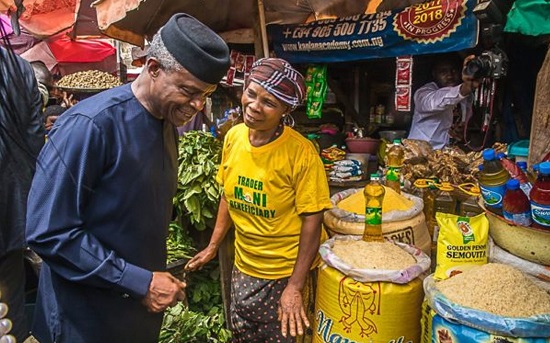Vice President, Yemi Osinbajo yesterday, told Nigerian-German investors that Nigeria is now a food basket of the world with huge investment potentials.
Osinbajo made the assertion during a dialogue in Berlin, Germany, adding that the country is also the best destination for serious-minded investors.
Backing his claims with statistical facts, the Nigerian Vice President said: “Consumer spending in Africa was $1.4 trillion by 2015, with Nigeria, Egypt and South Africa accounting for more than half of that total.
“There is also increasing economic opportunities in Nigeria because of deliberate actions by our government to diversify the economy and improve the business environment.
“It is encouraging that there are significant economic ties between Nigeria and Germany. Germany is a significant exporter to Nigeria, which is its second largest trading partner in Africa.
“Recent reports show that German investment in Nigeria contributes as much as $1 billion in turnover annually. This is good, but we must agree that there is scope for even deeper collaboration given that Nigeria’s GDP is close to $500bn.”
He said Nigeria now “Produces locally 10 million metric tonnes of paddy rice annually. And we are importing only two percent of our rice consumption now,” noting that “Investments in milling capacity has risen astronomically since then, with one investor putting a million tonnes of milling capacity into the market.
“Carlos Farms, a Mexican fruit and vegetable investor, had initially planned to grow bananas and pineapples for export; until he discovered that he was making more money selling his bananas locally at $3 dollars a kilogramme, for what he would have been paid only a dollar per kg in Europe.
“With a substantial percentage of the world’s arable land and over half of that uncultivated, it is becoming clearer that the world will be looking to Africa and Nigeria in particular, as its food basket.
“Just to take China’s demand alone, China has 27 percent of the world’s population, but only 7 percent of the world’s arable land for agriculture. China needs 2 million tonnes of hybrid Soya beans per annum for livestock feed and vegetable oil. But we have not met that demand.”
“We are also diversifying within oil, while adding that Nigeria is already exporting urea since it is producing more than enough for its domestic needs and in the very near future.
“In the service sector, about 1.8 million international travellers spend two nights on average at Nigeria’s estimated 10,000 hotel rooms yearly.
“This generated about $210 million in revenue for the industry in 2017, which barely reflects on Nigeria’s $500 billion GDP size.
“Nigeria’s hotel industry alone is projected to grow by double digits by 2020, as the sector bounces back post-recession to one of the fastest growing in the world, and the possibilities for investors is significant.”
[ThisDay]



